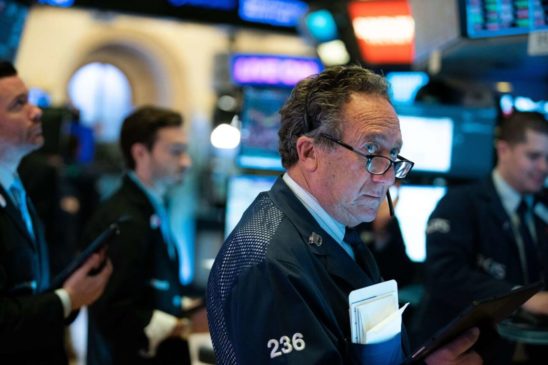- Dow Jones futures rose by as much as 64 points Thursday night before paring gains.
- The Dow closed higher in New York, capping off its longest winning streak in five weeks.
- The Labor Department will release the May nonfarm payrolls report Friday at 8:30 a.m. ET. Eight million job losses are expected.
Futures on the Dow and broader U.S. stock market reversed modest gains Thursday evening, as investors paused in anticipation of May employment numbers.
Stock Futures Give Back Modest Gains
Stock futures traded mixed Thursday evening. Dow Jones futures rose by as much as 64 points before paring most of their gains. S&P 500 futures and Nasdaq 100 mini contracts flat-lined.
The Dow eked out modest gains in New York, closing out its longest winning streak since April, even as the S&P 500 and Nasdaq fell.
Stocks are in the midst of a V-shaped recovery thanks to Federal Reserve intervention in the market. And while Q2 2020 is expected to mark the start of a sharp recession, forward-looking investors believe the worst of the downturn has passed.
Nonfarm Payrolls In Focus
Labor economists will release a fresh batch of employment data Friday morning, setting the stage for a potentially sharp response from the stock market.
On Wednesday, the ADP Research Institute said private-sector payrolls declined by 2.76 million in May, far less than the 8 million decline analysts expected.
Private payrolls decline less than expected in May:
Despite ADP’s better-than-expected report, official nonfarm payrolls data are expected to show a decline of 8 million jobs in May due to the ongoing layoffs. Employers shed a combined 21.4 million jobs in the previous two months.
May unemployment is expected to reach 19.5% from 14.7% in April, the highest since record-keeping began in 1948.
A shrinking labor market has resulted in a sharp rise in wages as employers adjusted to the new lockdown reality.
Average hourly earnings, which are a proxy for wage inflation, shot up 4.7% in April and 8.5% annually. In May, the increase is expected to be a much more modest 1%, which translates into 8.5% year-over-year.
In a separate report released Thursday, the Commerce Department said imports plunged 13.7% in April while exports fell 20.5%. Both declines were the largest since 1992 and underscored the economic fallout from government lockdown orders.
Last modified: June 5, 2020 12:06 AM UTC




